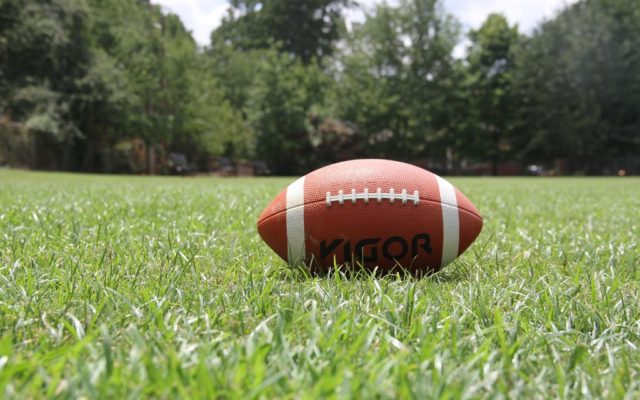
Officiating shortage looms ahead of Maine high school football’s fall return
By Ernie Clark, Bangor Daily News Staff
The prospect of a return to high school sports as usual this fall revives a question that’s been posed during the best of times in recent years.
Who will officiate the games?
A shortage of game officials in virtually every interscholastic sport has become a growing challenge not only in Maine, but around the country.
The National Federation of State High School Associations launched a recruiting campaign for prospective sports officials in 2017, but the shortfall lingers and may be exacerbated this coming school year by COVID-19.
In Maine, opportunities for people interested in reconnecting with competitive sports through becoming an official abound.
“It’s not just football, it’s everything,” said Maine commissioner of officials Jeff Benson, who estimated that as many as 30 to 40 percent of the officials statewide did not work during the recently completed school year. “Soccer, football, field hockey, we have a need for officials in everything we have coming up for the fall.”
Football, among other sports, has dealt with a gradually reduced, aging membership among its officials, and it now faces possible further reductions from officials who choose not to return after sitting out last fall due to COVID concerns or chose or opting not to officiate non-tackle versions of the sport that were offered when tackle football was sidelined after being considered high risk in state community sports guidelines.
The Bangor chapter of the Maine Association of Football Officials, which provides officials for high-school, middle-school and youth football programs throughout the northern half of the state, began last year with 60 officials available to work games.
This year, chapter assignor Doug Ferguson said that, as of June 24, only 47 officials are expected to be available.
“The numbers are way down,” said Dan Campbell, a veteran football and baseball official who will teach the Bangor chapter’s annual class for new officials that begins Aug. 12. “People are retiring each year. Some of the guys that retired coming into this season really wanted to retire two years ago and they came back for another year and then COVID last year really put a damper on a lot of things.”
Whether that chapter or others around the state are able to field a sufficient number of game officials on their own may hinge on the availability of those members who chose not to work games in 2020.
“In speaking with some of the assignors and knowing how many people were out in the fall and the winter, I think the biggest question is how many of those people who sat out are going to return to us and not opt out again,” Benson said.
“That will be the big challenge for us and our officiating boards. How many of those officials that opted out will come back so we can provide the service we need to do for the schools?”
A shortage could be addressed in a couple of ways.
One is sharing officials with neighboring chapters, a practice which has been used occasionally in recent years.
“There’s one night this fall when we’ll need 50 officials and another night when we’ll need 55,” Ferguson said. “We do use officials from other boards to help out.”
Another option is for some games to be worked by four-official crews rather than the preferred five-person crews, though that places added demands on the smaller crews.
“The keys are different and the responsibility [for each official] increases because you have more to look for,” Campbell said. “The fewer officials, the more you’re not going to be able to see because you have more responsibility as you’re scanning your keys.
“It’s a big deal going from five to four.”
That’s particularly true on pass plays, as the fifth official typically is the back judge, whose responsibilities include working in concert with the wing officials to cover plays downfield.
“But with a four-man crew you only have the two [wing] officials out there so something right down the middle of the field is tougher,” Ferguson said. “Plus, we’re not as young as we used to be. We’re an aging board, so it’s easier to get out of position when you’re 62 years old than it is when you’re 32. And the kids seem to get faster every year.”
The longer-term solution to this annual dilemma is to attract new officials, but that has been a tough challenge in Maine and beyond.
“In my opinion, the number one reason why people are not attracted to officiating is because social media is very quick to criticize,” Campbell said, adding that people are quick to criticize.
“But what keeps you coming back is the love of the game, the sport, and the enjoyment that I take from seeing the kids get it, have fun and just having that whole experience.”
Campbell added that the teamwork involved in officiating creates a unique level of camaraderie among peers.
“You go out on a Friday night with four other guys and you bring in conversations from all walks of life,” he said. “Everybody’s got a story to tell on the way to the game, and on the way back you share the experience of what you just went through.”
Anyone interested in taking the free prospective officials’ course through the Bangor chapter of the Maine Association of Football Officials may sign up by contacting Campbell at 207-478-0822 or dcampbell@rsu71.org.